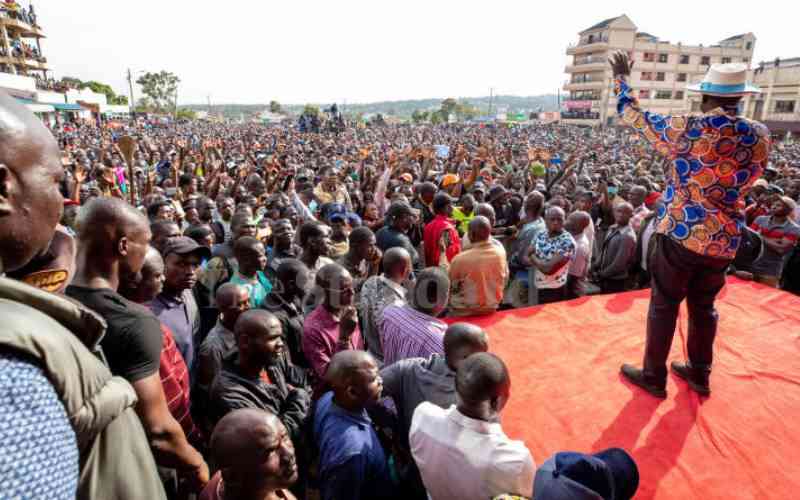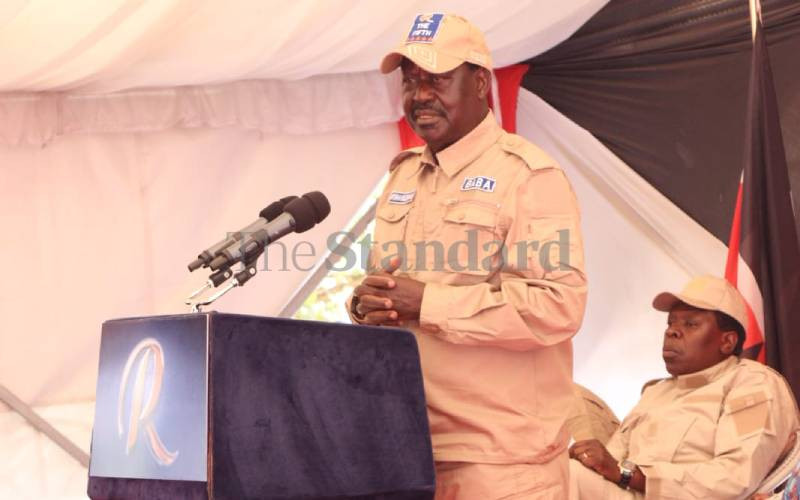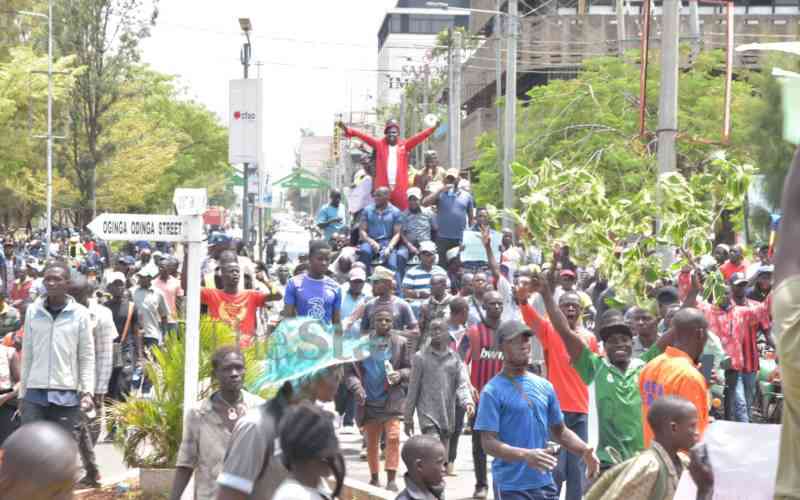Azimio leader Raila Omollo Odinga during a Peoples Baraza in Migori. [Emmanuel Wanson, Standard]
Azimio leader Raila Odinga has said that he will inform Kenyans of the move to take against companies he said were being misused by the government.
Odinga was speaking in Migori where he held the first mass action rally against the Kenya Kwanza administration.
He said that the opposition has a list of companies that he will incite Kenyans to stop using their services or products.
“A strike will also come,” he added.
He fired a warning shot at Interior CS Professor Kithure Kindiki telling him not to be misused by the government to disrupt the Azimio rallies.
- How two words cost KRA Sh900m case against Coca Cola company
-
Raila Odinga to list brands Kenyans should boycott as mass action kicks off

-
Opposition is not fit enough to keep government on its toes

-
Business paralyzed as Kisumu residents begin mass action protests

He said that the Azimio coalition had launched the Movement for the defence of democracy on Thursday, March 9, because of the failure of the Kenya Kwanza administration to address issues he says are essential to Kenyans. Among the issues is the high cost of living.
Odinga also said that President William Ruto had refused to heed the call to have the selection process of IEBC commissioners inclusive of all interested parties as well as electoral justice.
“We want the servers open and interrogated in order to know how many votes Ruto got and the votes Raila and Martha got,” he said.
He faulted the Ruto-led administration for doing away with subsidies that he said were helping Kenyans to cope with the high cost of living.
He reiterated that the Whistleblower’s report on the 2022 general election was the true events of what transpired, that he and Martha Karua won the election.
Odinga added the split among IEBC commissioners is also evidence enough that the Cherera four stood for what was right and that the commission should have adopted their decision but chose to adopt the decision of the minority commissioners. By Fred Kagonye, The Standard






